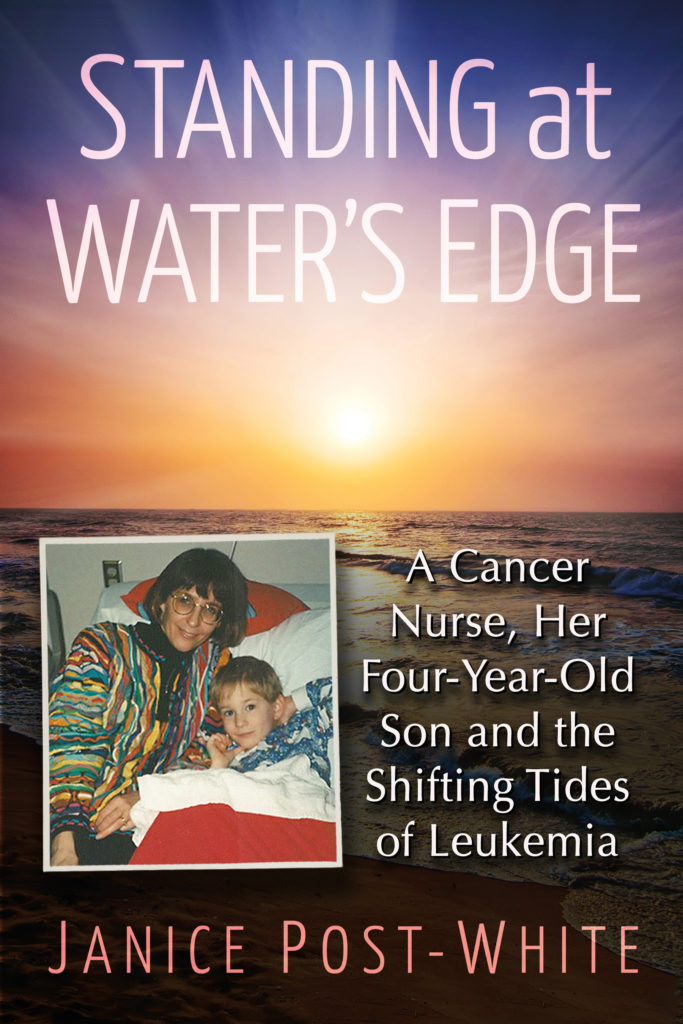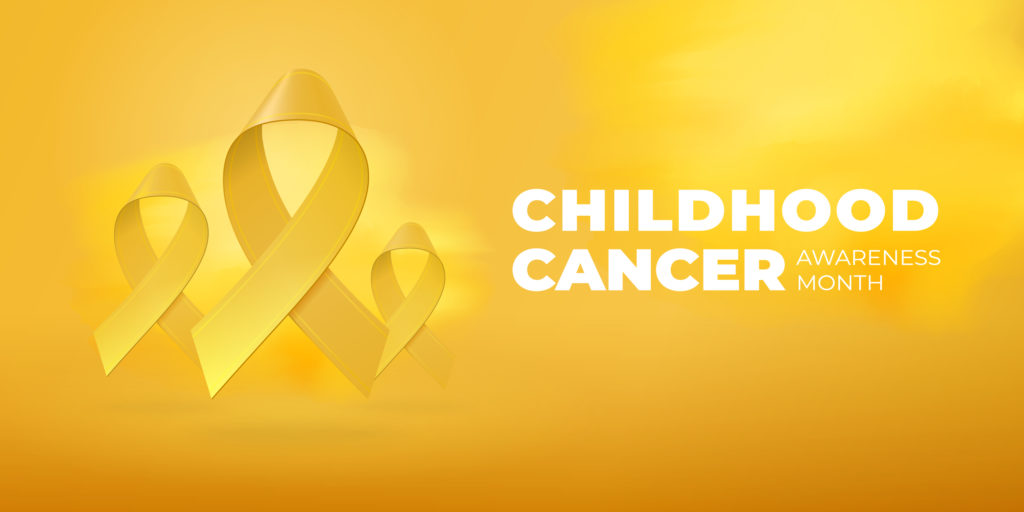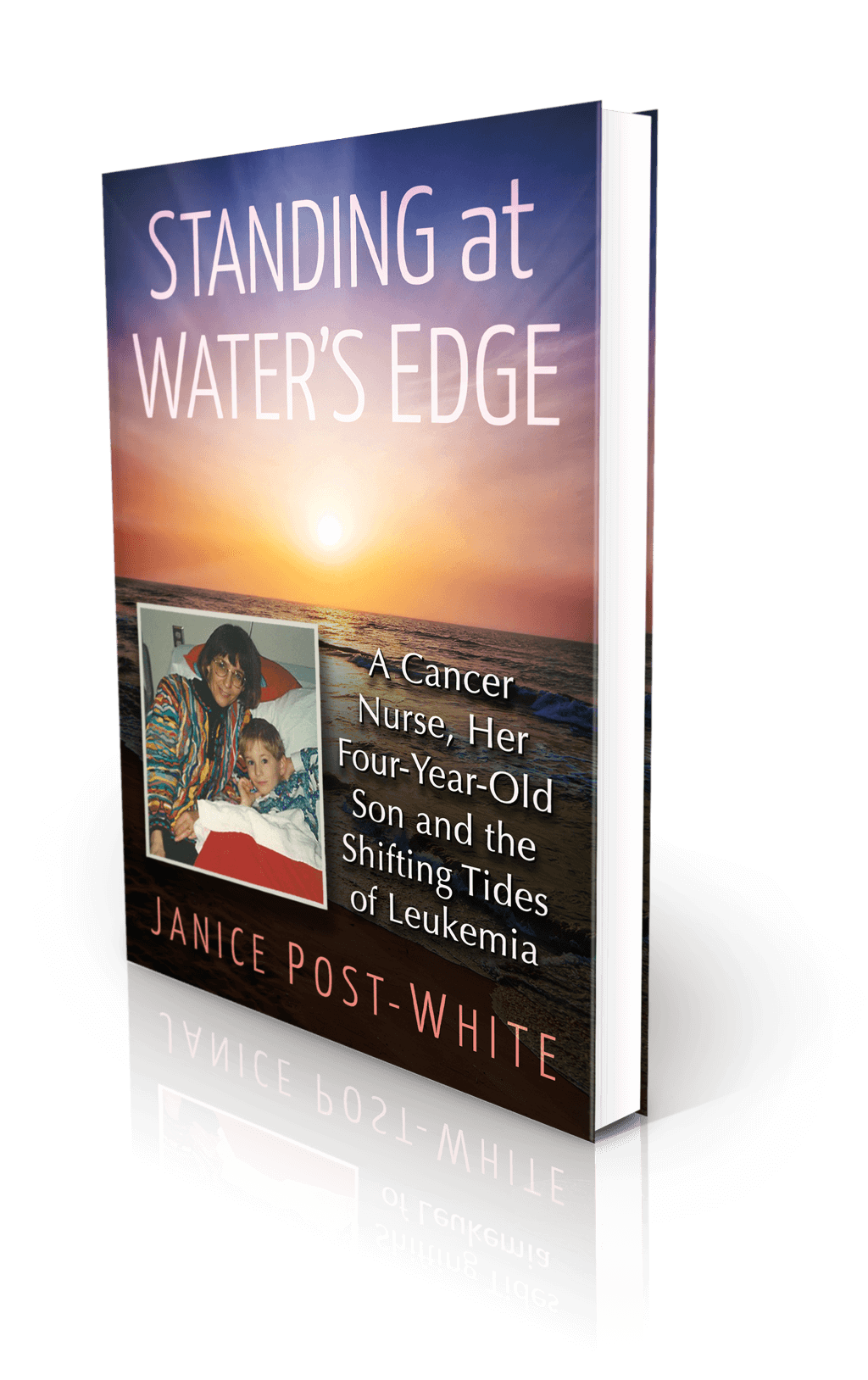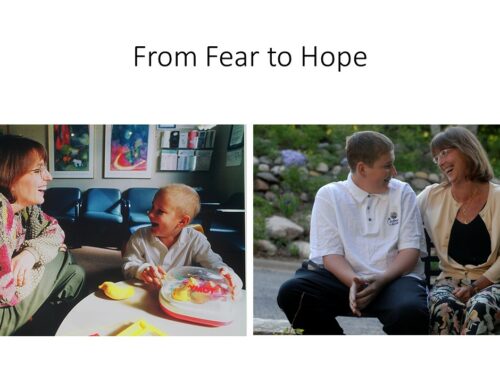

Years after my son completed treatment for leukemia, I stood at the ocean shore as dusk descended with unexpected swiftness. Blackness blanketed the bay, and I felt the same fear and isolation I’d experienced that first fretful night in the hospital. I peered into the darkness, expecting the horizon to orient me, searching for the line demarcating sky and water, insight and perspective, when suddenly the waves surged up over my knees, throwing me off balance. In my determined effort to find a beacon, I’d forgotten to pay attention to the moment. (adapted, Standing at Water’s Edge: A Cancer Nurse, Her Four-Year-Old Son and the Shifting Tides of Leukemia).
It’s easy to get wrapped up in day-to-day life and miss the cues, the beacons, reminders of what’s important as we strive to live the life we want for ourselves. The “what” may differ among us—what’s important to you may be different than what’s important to others (just ask your children). It’s paying attention that matters.
Of course, outside circumstances influence and interfere with our best-laid plans. (The coronavirus pandemic, for example). Childhood cancer detoured my family when my children were young. It demanded we pay attention, respond to, get through, and adapt to changing life circumstances. We had a clinical trial roadmap to follow the treatment plan, but little guidance in connecting with our heart. We were so busy “doing.”
As I stood at the ocean shore a decade off treatment, peering into the darkness, I tried to remember what I had learned. Our son survived, and we had moved on with life and living. But the lessons were too important to forget. That’s when I decided to write about how my insight and perspective as a cancer nurse and integrative medicine researcher shaped my response to my son’s leukemia and taught me to pay attention to the moment. We may not have control over the circumstances, but we always have a choice in how we respond.
Childhood Cancer Awareness Month

Shutterstock PhotoSeptember is Childhood Cancer Awareness Month, and this week is designated explicitly for survivorship by Childhood Cancer International (CCI) and the International Society of Pediatric Oncology (SIOP). It’s timely then that Standing at Water’s Edge is now available for preorder* (although it won’t come out until December).
There are more than 500,000 childhood cancer survivors in the U.S., with 16,000 children diagnosed every year (400,000 worldwide). Our son survived his leukemia because of a global research network specific to pediatric cancer. Fifty years ago, most children died from cancer. (As a frame of reference, I worked as an oncology nurse 40 years ago at Dana Farber Cancer Institute in Boston). Today, 80% of children with cancer in the U.S. survive. However, as few as 20% survive in low- and middle-income countries (in part due to limited access to care, long travel distances and lack of transportation, and cultural beliefs against treatment). Clinical trials continue to test new treatments (e.g., CAR T-cell therapy) and fine-tune the delicate balance between increasing survival and reducing side effects, including long-term effects. Unfortunately, most children who survive cancer have one or more long-term effects of their treatment. But we are so grateful they are alive.
Loss, Survivorship, Resiliency
Living through three years of cancer treatment was a challenging and heart-wrenching time in our lives. Cancer kidnapped childhood. As with any loss we experience in life, we often bury unwelcome feelings, focus on the positive, and try to move on. But as much as we want to, we don’t forget. As Thomas Moore writes in Dark Nights of the Soul, “Fears are like shadows. They loom bigger in the dark.”
Although every family’s experience and response is unique, the fear of losing a child under any circumstances is universal. My fears came back to haunt me in my dreams years after my son came off treatment. It was as if the memories had weaseled their way into my cells, lurking in my DNA, regenerating insidiously. I had to face my fears, or I would have carried those buried emotions with me forever. I wanted love, not fear, to infuse my life. My father gave me the courage, and other parents showed me the way. You can meet them in my memoir.
For years, whenever friends and acquaintances asked if working as a cancer nurse was depressing, I always said, “No. My patients teach me how to live.” With my son’s diagnosis, I learned first-hand how facing death teaches us to live authentically, with awareness and intention. If we pay attention.
Blessings to you and your families,
~ Janice
*If you are interested, Standing at Water’s Edge comes out in December 2021. The print copy is available for preorder now at the publisher (McFarland and Company) and Amazon. Electronic and audiobook versions will be available at a later date, as will links to other ordering sites. And, thank you.

About the Book
Janice Post-White’s memoir is a story about a cancer nurse who thought she knew what life and death were about.
Then her 4-year-old son got leukemia.
This heart-wrenchingly real but inspiring book shines a light on the life-affirming discoveries that can be made when one is forced to face death—and bravely chooses to face fears.
ON SALE DECEMBER 3, 2021
2022 First Place Award from the American Journal of Nursing Book of the Year in the category of Consumer Health and Third Place in Creative Works
Finalist in Health/Cancer from the American Book Fest Best Book Awards, the International Book Awards, and the Eric Hoffer Book Awards



